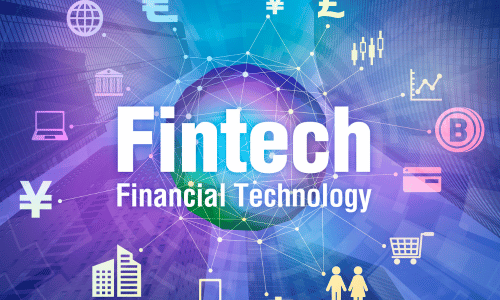
In the labyrinth of financial services, a new path has been carved out by the innovative prowess of fintech. This blend of finance and technology has not just disrupted traditional banking; it has laid the foundation for a revolution in personal finance. From the palm of your hand, you can now manage assets, apply for loans, and even invest in futures, thanks to fintech’s seamless integration into our daily lives. The advent of fintech is akin to the dawn of the internet – hard to foresee in full impact, yet impossible to ignore its presence. In this article, we will unravel how fintech is transforming personal finance, offering unprecedented accessibility, personalization, and fortified security.
The Rise of Fintech

The term “fintech,” a portmanteau of financial technology, is no longer just jargon for industry insiders. It has emerged as a beacon of innovation within the financial sector. Fintech’s roots can be traced back to the early 21st century, with the advent of technologies aimed at improving the delivery of financial services. However, its exponential growth has been a more recent phenomenon, catalyzed by the global financial crisis of 2008. As trust in traditional banks wavered, fintech companies seized the opportunity to offer consumers alternatives that were more transparent, accessible, and user-friendly.
Recent statistics highlight the meteoric rise of fintech, with the global fintech market expected to reach $305 billion by 2025, growing at an annual rate of approximately 20%. This burgeoning sector has not only captured the attention of investors and entrepreneurs but also prompted regulatory bodies to adapt. Governments and financial authorities worldwide are re-examining their frameworks to accommodate the rapid pace of fintech innovation while ensuring consumer protection and financial stability.
Major Fintech Innovations in Personal Finance

Mobile Payments: Simplifying Transactions
Mobile payments have redefined the concept of convenience in financial transactions. Services like Apple Pay and Google Wallet allow users to make purchases with a tap of their phone, rendering physical wallets increasingly obsolete. In 2019 alone, 1.31 billion individuals worldwide used a mobile payment service, reflecting a growing preference for digital transaction methods.
Personal Finance Management Tools: Empowering Budgeting and Investing
The proliferation of personal finance management (PFM) tools has empowered individuals to take control of their finances. Apps like Mint and YNAB offer users a comprehensive platform to track spending, create budgets, and monitor accounts in real-time. Meanwhile, investment apps such as Robinhood and Acorns have democratized investing, making it accessible to those without substantial capital.
Peer-to-Peer (P2P) Lending: Bypassing Traditional Banks
P2P lending platforms like Prosper and LendingClub have transformed the borrowing landscape, connecting lenders directly with borrowers through an online marketplace. This model offers competitive rates for borrowers and higher returns for investors, challenging the monopoly of traditional banking institutions.
Cryptocurrencies and Blockchain: Revolutionizing Asset Management
Cryptocurrencies and blockchain technology have introduced a new asset class to personal finance. Blockchain’s decentralized ledger provides a secure and transparent method of transaction, which has been leveraged by cryptocurrencies such as Bitcoin and Ethereum to facilitate digital asset management and investment.
Case Studies: Fintech’s Real-World Impact
Case Study 1: Streamlining Personal Savings with ‘Oportun‘
Consider the case of ‘Oportun,’ an intelligent savings app. Oportun analyzes users’ spending habits and automatically transfers small amounts that can be spared into a savings account. For Jessica, a freelance graphic designer, Oportun proved to be a game-changer. The app discreetly saved $2,500 for her over six months without her having to budget manually. This case illustrates the practical benefits of fintech in automating personal finance tasks, making saving effortless and more effective.
Case Study 2: Crowdfunding Homeownership with ‘Fundraise‘
On the investment front, ‘Fundrise’ offers a glimpse into the democratization of real estate investing. This platform allows individuals to invest in property portfolios with as little as $500. Take the example of the Nguyen family, who invested in a portfolio that includes commercial and residential properties, earning a 12% annual return. Before fintech, such investment opportunities were typically reserved for the affluent.
Expert Opinions: Envisioning the Future of Fintech

The transformative power of fintech is not just in its current applications but also in its potential. Industry experts forecast that the next decade will witness even more personalized financial services, as fintech continues to harness big data and artificial intelligence.
Dr. Alex Jimenez, a fintech strategist, states, “The future of fintech is integration. Soon, your financial apps won’t just track your spending; they’ll predict it and automate much of the decision-making process.” This sentiment is echoed by tech visionary Sophia Smith, who predicts, “Blockchain will go beyond cryptocurrencies, potentially reducing fraud and errors in public record keeping.”
Jamie Lee, a fintech consultant, emphasizes the importance of user experience: “Fintech companies that prioritize a frictionless user experience will lead the pack, especially as we see a shift towards mobile-first financial solutions.”
Conclusion
The journey through the landscape of fintech innovations reveals a significant shift in the paradigm of personal finance. Mobile payments, personal finance management tools, P2P lending, and the advent of cryptocurrencies have not just been conveniences; they have been catalysts for empowerment, inclusivity, and security. The case studies of Oportun and Fundraise illustrate the real-world benefits of fintech, offering tangible evidence of its transformative impact. Expert insights forecast a future where fintech solutions become even more integrated into our daily financial decisions, driven by the continual evolution of technology and consumer expectations.
As we stand on the cusp of this financial revolution, it is clear that fintech is not merely a trend but a fundamental shift in how we interact with money. It promises a future where managing personal finances is not a chore but a seamless part of life. The question for each of us is not if, but how we will embrace the innovations that fintech presents.
We’ve unpacked a lot today at Biz Step Ladder, and now it’s your turn to add to the dialogue. Do you have insights or experiences that could expand on what we’ve discussed? Perhaps you’ve identified an angle we haven’t covered. Jump into the conversation below with your comments and let’s continue the learning journey together. Your input is not just welcome—it’s a vital part of our community’s growth. So, what are your thoughts? Share them below and let’s enrich our business wisdom collectively!
Discover related content by exploring How Does Personal Branding Help Your Business Growth





